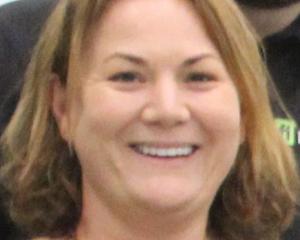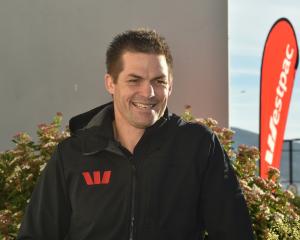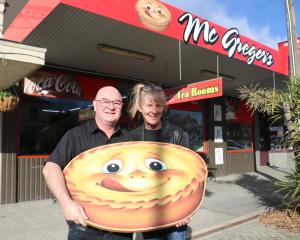That is the message from John Gallaher, who hopes the city becomes a place that is known for its support of new and innovative ideas which, in turn, will help drive the economy.
The diversity and opportunities of having a university and a polytechnic in the city needed to be celebrated.
Angel investment was ''just one part of the jigsaw'' when it came to building the businesses of the future, Mr Gallaher said.
Last year, angel networks and funds invested a record $55.9 million into young New Zealand companies.
It was the first time the Young Company Finance Index had recorded consecutive $50 million plus investment years, after $53.1 million was invested in 2013, New Zealand Venture Investment Fund chief executive Franceska Banga said.
When the index first measured angel group investment activity in 2006, just over $20 million was being invested annually.
The sector, if current growth trends continued, was likely to treble in size within a decade, Ms Banga said.
The ''rise and rise'' of investment in software companies had been the driver of that over the past few years. they had attracted $26.2 million last year and $27.9 million in 2013.
That was likely due to the demonstrator effect of companies such as Xero, Orion Health and Jade, along with global trends towards ''all things digital'', she said.
New Zealand Angel Association chairman Marcel van den Assum said the growing number of angel investors joining networks and funds helped to deliver the record investment year.
While it was a difficult statistic to assess, it was estimated the number of angel investors involved in networks had grown from about 370 to 730 in the past two years.
Since 2006, 54% of investment was in Auckland, 11% in Christchurch and Wellington, 7% in Dunedin, 5% in Palmerston North and Hamilton, and 3% in Tauranga.
Mr Gallaher, a senior investment adviser with Forsyth Barr, became involved with angel investing about a decade ago, when he was asked to chair the investment committee of business incubator Upstart.
The notion of growing a business from a ''standing start'' was exciting but it was also very challenging.
While a lot of people were passionate about a business or idea, the real challenge was making it work.
''That's hard work,'' he said.
A lot of work needed to be done between the idea and proving its viability and developing it through to becoming a viable investment opportunity.
Angel investing appealed to people who understood early stage investment risk. Often, such people had built their own businesses or been successful in other areas of investment and brought skills, knowledge and professionalism.
That business experience was equally as important as the money being provided, Mr Gallaher believed.
Angel investors understood good basic investment principles and also realised that when such a business became successful, it very often became very successful.
A basic portfolio approach should be taken and not everything was going to be successful, he said.
The Otago Angels group was in a transition period and capability was being rebuilt to provide angel investment.
There were a lot of exciting new ideas and opportunities and hopefully a good number of those would become successful and become part of the future of Dunedin.
With thousands of young people in the city studying ''all manner of different things'', it was a ''given'' that there was going to be innovation and ideas among them.
It was far better that there was some way of retaining that creativity in the city.












